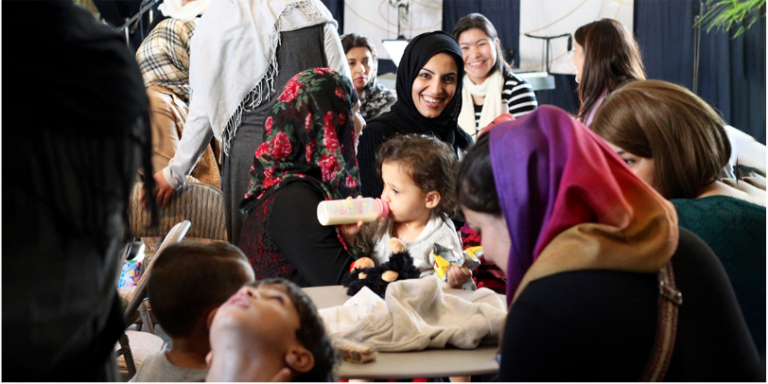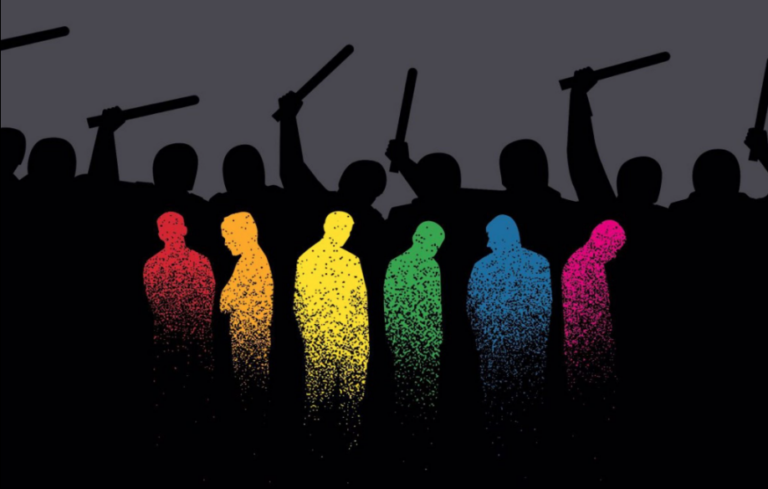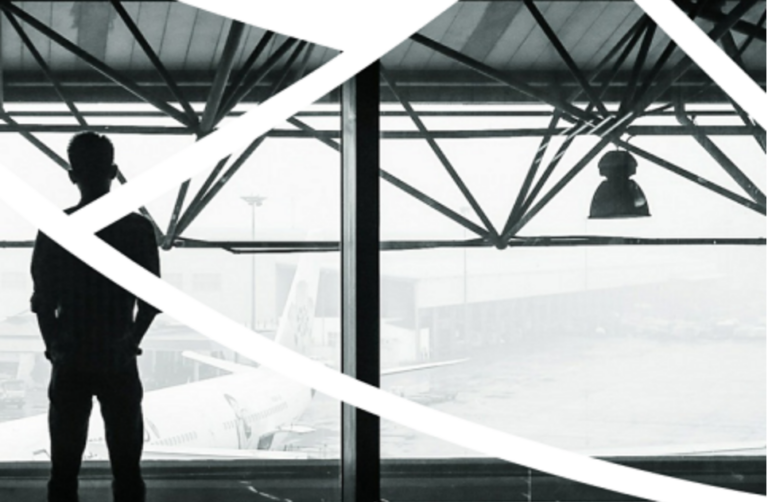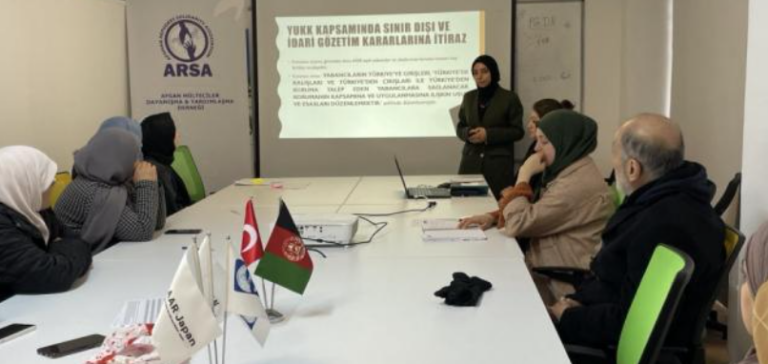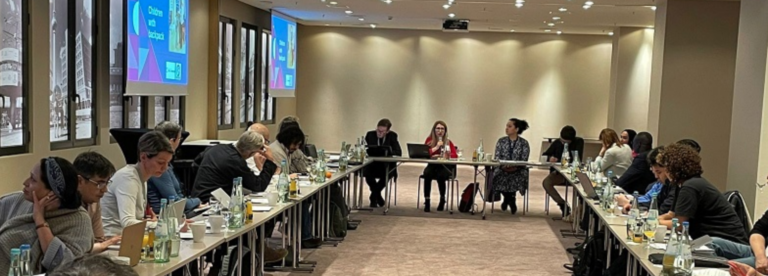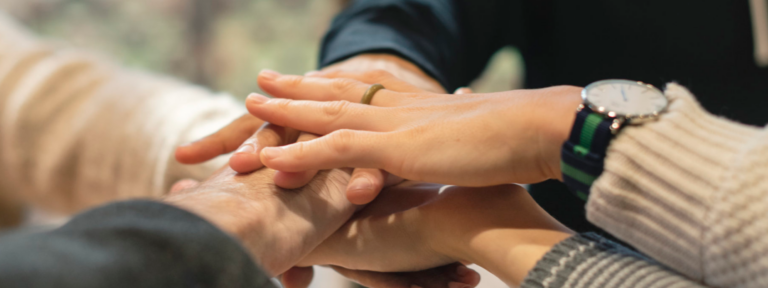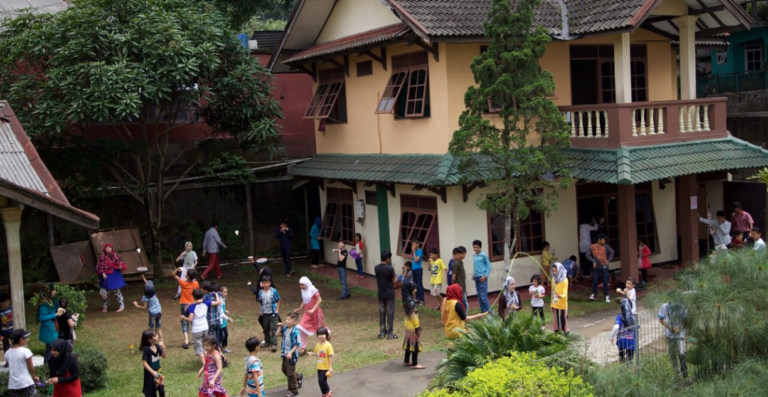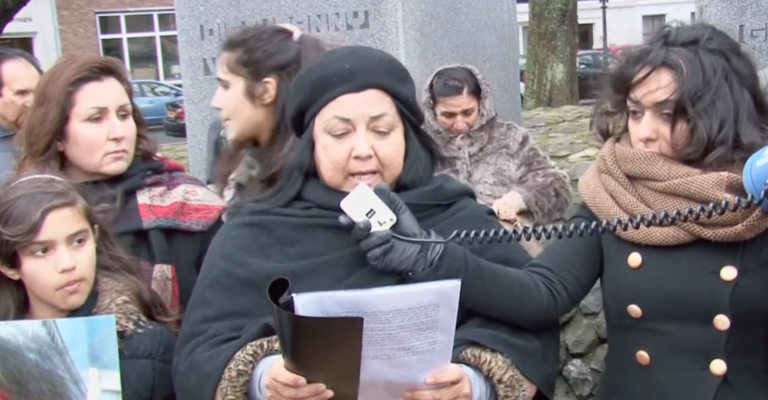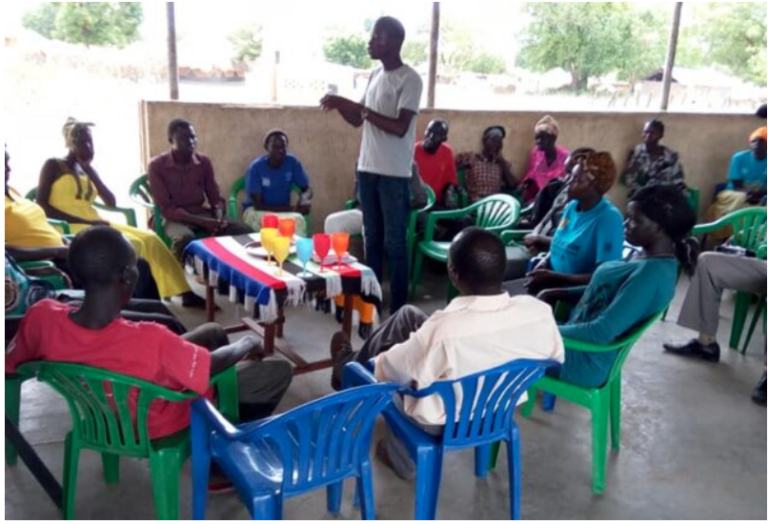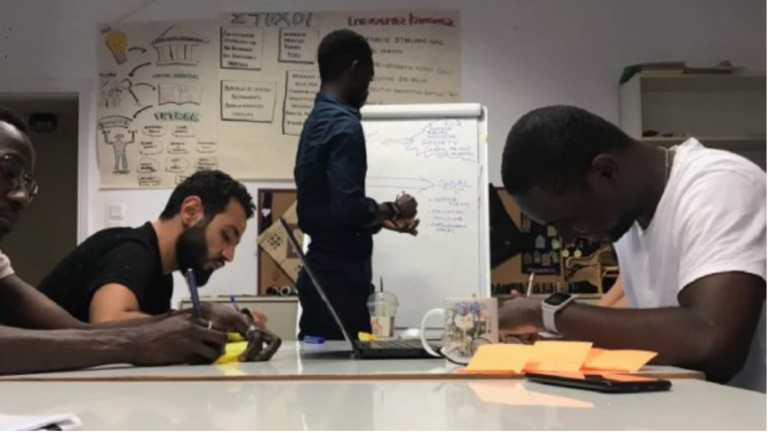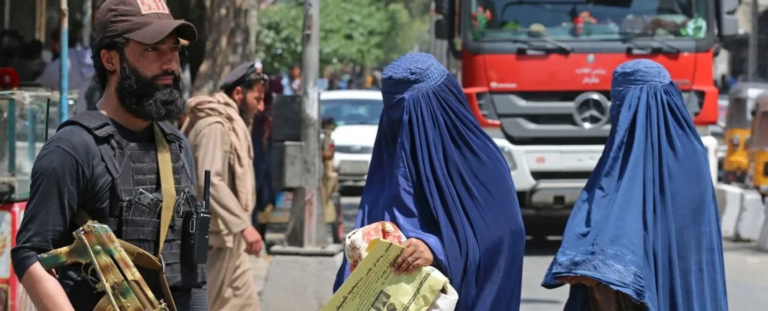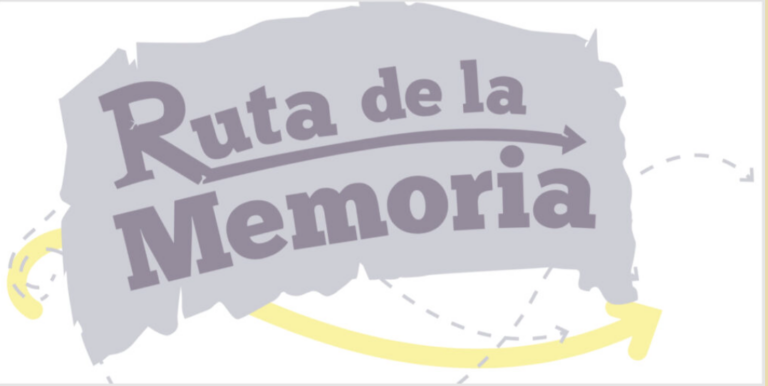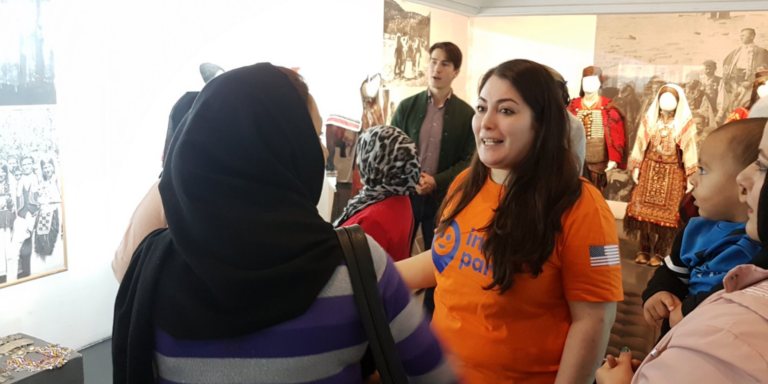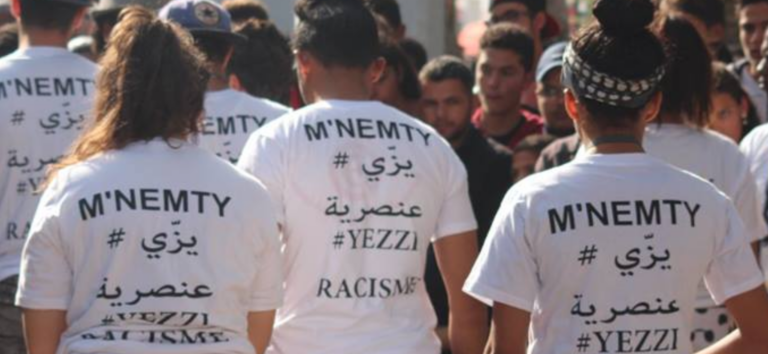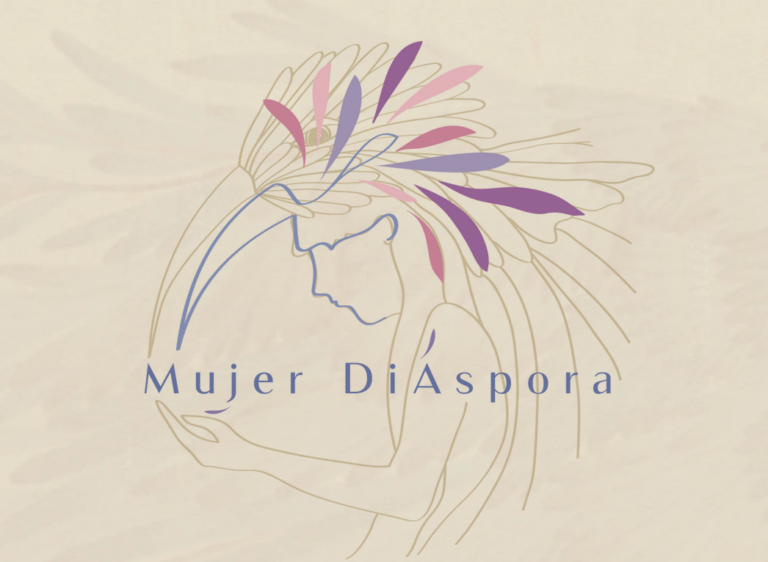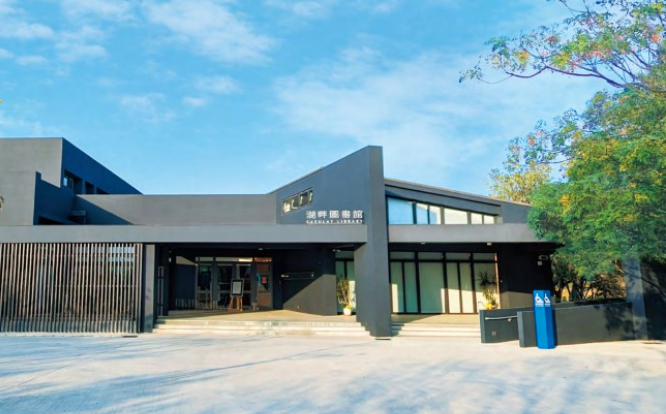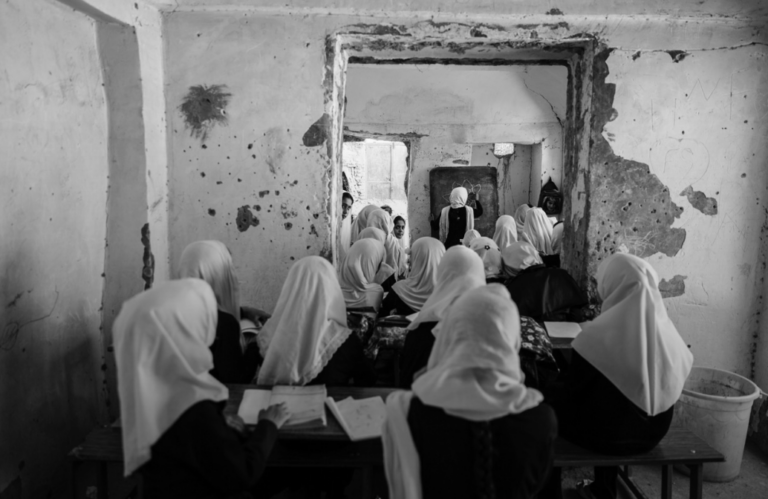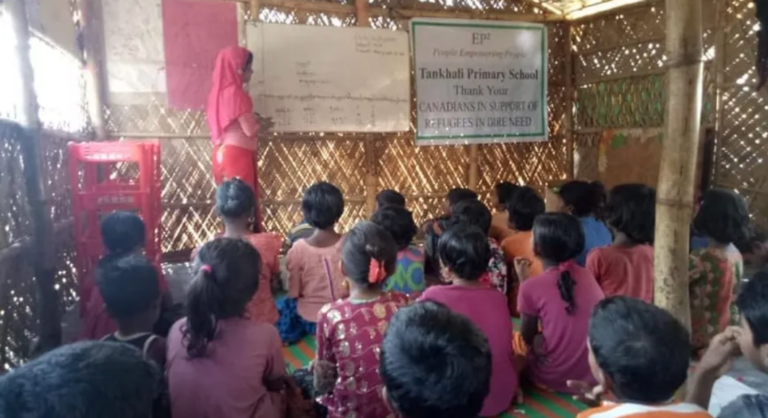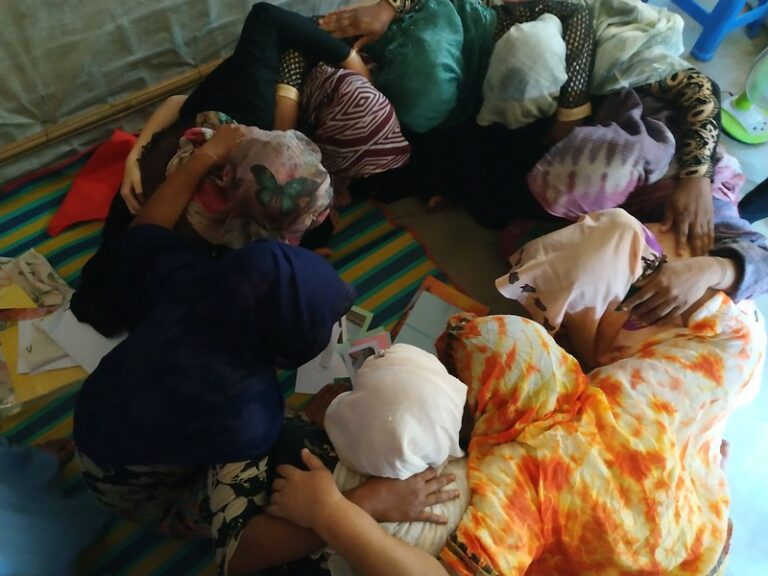Centering Forcibly Displaced Communities
In the wake of the Taliban’s takeover in 2021, “Afghanistan Advancing Rights: Adopting an Inclusive and Victim-Centered Documentation and Memorialization Approach” supports Afghan civil society organizations in the diaspora as they work to advance the rights and document the experiences of victims of human rights violations in the country.
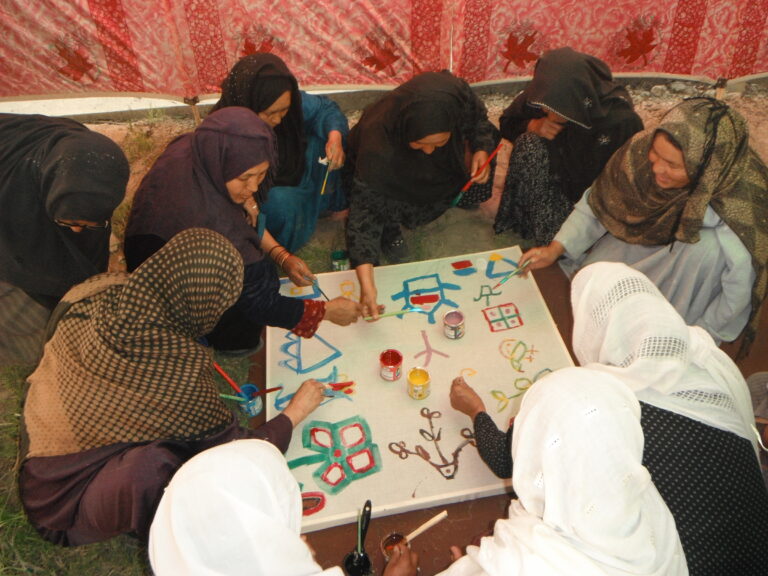
Context
Forced displacement is on the rise in all parts of the world. According to the United Nations Refugee Agency, more than 117 million people were forcibly displaced at the end of 2023 as a result of war, violence, human rights violations, or political, ethnic, gender or religious persecution.
Afghan refugees continue to make up one of the largest displacement situations. With the return to power of the Taliban, and the deliberate attacks on minorities, women, human rights defenders, journalists and civil society actors, millions of Afghans have been forced to flee the country, many for the second and third times in their lifetimes. Currently, according to UNHCR, 8.2 million Afghans are sheltered in five neighboring countries: Iran, Pakistan, Tajikistan, Turkmenistan and Uzbekistan, either trying to find a livelihood locally or searching for options to seek settlement elsewhere.
The hardships Afghan forcibly displaced people, and displaced people globally, have endured in their country and through their displacement make them extremely vulnerable. While many suffer from trauma, they also face protection challenges and lack access to shelter, food and other basic services. With a deteriorating socio-political, economic and security situation in host countries, forcibly displaced people also suffer exclusion and discrimination. Persecution on the grounds of socio-political, ethno-religious, and gender identity has been a key dimension of this displacement trend.
The invisibility of forcibly displaced people’ stories and perspectives in the public space is restricting the conversation about displaced people’s needs to access to protection and basic services, and leaving out “intangible ones surrounding truth, justice, and memorialization, particularly when their displacement is the result of fundamental human rights violations.”
While actors working with forcibly displaced people have to an extent, recognized the importance of centering their voices and experiences to meet their multidimensional needs, and shift social perceptions and policies toward them, this has not yet resulted in an appropriate representation of forcibly displaced communities in public policies and in transitional justice processes.
Project Details
In response, GIJTR’s founding partner, the International Coalition of Sites of Conscience, and its member site, the Afghanistan Human Rights and Democracy Organization (AHRDO), have partnered to implement “Afghanistan: Advancing Rights Adopting an Inclusive and Victim-Centered Documentation and Memorialization Approach,” an effort to build on each other’s work to advance the rights of victims of human rights violations and forced displacement by adopting documentation and memorialization approaches that center their voices and needs and that empower them to take part in transitional justice processes and advocacy efforts.
Project Objectives
Strengthen truth, justice and accountability for Afghan victims of human rights violations and forced displacement
- 20 cases of ongoing unlawful arrests, torture, and flogging under the Taliban Regime were documented and presented to accountability mechanisms to pursue truth, justice and accountability.
- Documentaries and books were produced to raise awareness on the human rights situation in Afghanistan and on the experience of forced displacement.
Strengthen the capacity of working on human rights, transitional justice and forced displacement in Afghanistan and globally on inclusive and victim-centered documentation and memorialization
- 20 Afghan CSOs in the diaspora and CSOs working on human rights, transitional justice and forced displacement in Afghanistan and globally participated in the virtual capacity-building workshop “In Their Own Voice: Inclusive and Victim-Centered Documentation and Memorialization of Forced Displacement” organized in September 2023 to adopt inclusive and victim-centered documentation and memorialization approaches that are empowering and non re-traumatizing and that give agency to forcibly displaced people on the narratives of forced displacement.
- 8 organizations were awarded subgrants to implement inclusive and victim-centered documentation and memorialization projects with forcibly displaced communities.
- “In Their Own Voice, Manual for Inclusive and Victim-Centered Documentation and Memorialization of Forced Displacement” was produced in 2024 to provide guidance to adopt inclusive and victim-centered documentation and memorialization approaches that empower forcibly displaced people to shape their own narratives.
Foster exchange, new partnerships and collaboration to boost advocacy efforts that advance truth, justice and accountability, and shift social perceptions and policies towards forcibly displaced people.
- “In Their Own Voice: Centering Forcibly Displaced Communities in Advocacy Efforts,” a three-day meeting in Berlin, Germany in February 2024 gathered 20 Afghan CSOs in the diaspora and CSOs working on human rights, transitional justice and forced displacement in Afghanistan and globally to chart more unified and common pathways to ensure meaningful and equitable participation of forcibly displaced people in advocacy and better harness their expertise and perspectives. As a part of the meeting, the participants developed Recommendations for Meaningful and Equitable Participation of Forcibly Displaced People.
This manual provides guidance to adopt inclusive and victim-centered documentation and memorialization approaches that empower forcibly displaced people to shape their own narratives and ensure their meaningful and equitable participation in decision-making processes.
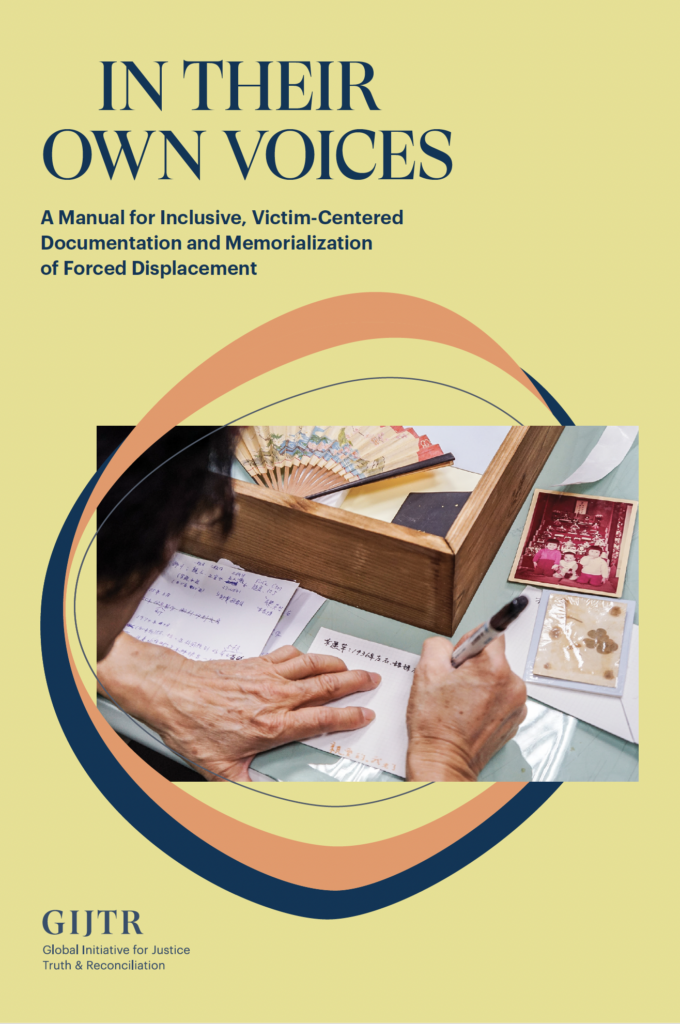
The recommendations in this toolkit are designed to guide practitioners, policymakers, and organizations in adopting inclusive and victim-centered approaches to documentation and memorialization. These approaches prioritize the empowerment of forcibly displaced individuals, ensuring their meaningful and equitable participation in decision-making processes.

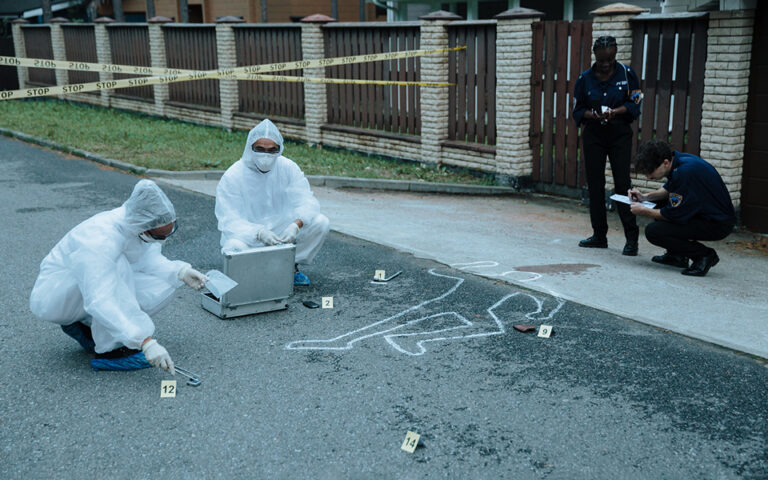
Afghanistan Forensic Science Organization (AFSO)
Afghanistan Forensic Science Organization (AFSO), Canada, is the first non-governmental forensic science organization in Afghanistan. Its mission is to advocate for the protection of human rights, civic liberties, and the rule of law. By using documentation and forensic sciences, AFSO has been instrumental in documenting forced disappearances and mass graves from the Civil War and other armed conflicts of the past four decades. As a part of its subgrant project, the AFSO team documented the human rights violations against the Hazara community of Khas Urozgan in Afghanistan that forced them to exile. The objective was to support this historically discriminated community to shape their narratives and pursue truth, justice, and accountability. The AFSO team focused on creating a safe environment to engage individuals to share their testimonies and participate in advocating for their rights. To build trust the team worked through local networks, social activists and community leaders who introduced the project and the team and facilitated discussions. The interviews were conducted in safe and private settings, ensuring anonymity of the participants who are very concerned about the security of their relatives in Afghanistan.
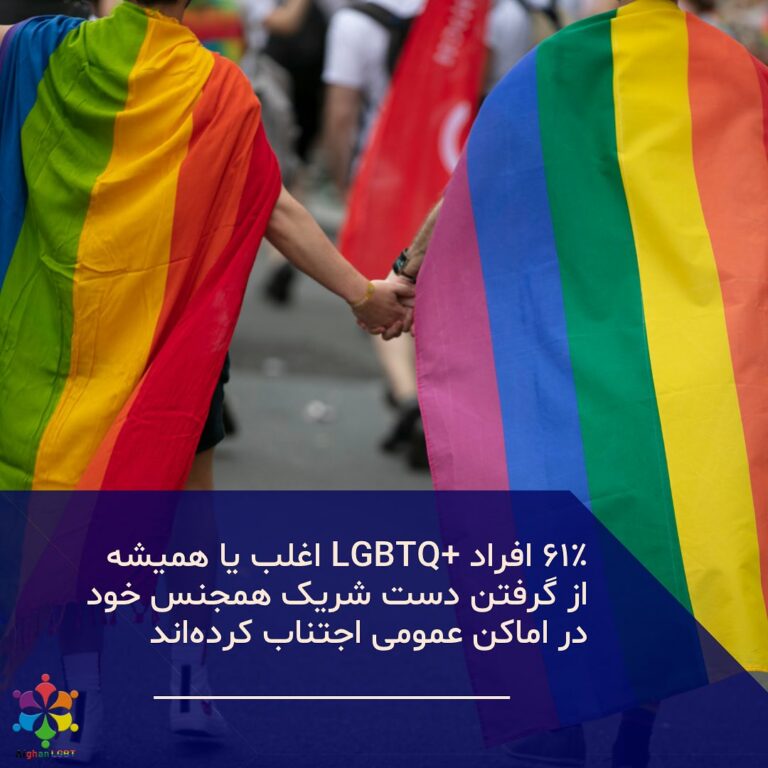
Afghan LGBT Organization (ALO)
Afghan LGBT Organization (ALO), Czech Republic, is a non-governmental organization headquartered in the Czech Republic which aims to empower Afghan LGBTQI individuals, provide access to support and resources, and amplify their voices. Through its work, ALO aims to create safe passages and opportunities for LGBTQI individuals amidst challenging circumstances. As a part of its subgrant project, the ALO team documented the lived experiences of 16 LGBTIQ people with a main focus on the impact of sexual violence and produced podcasts. ALO ensured to minimize the risk of re-traumatisation of the community by organizing several individual meetings to explain the project, gain their trust and co-develop the questions that they used for the podcasts. As a part of their trauma-informed approach, ALO provided mental health and psychosocial referral to participants and financial assistance when needed. Based on the needs and challenges faced by its community and the absence of proper support for the Afghan LGBTIQ+ survivors in Europe, ALO’s team decided to initiate a long-term program to provide mental health for LGBTIQ+ people.
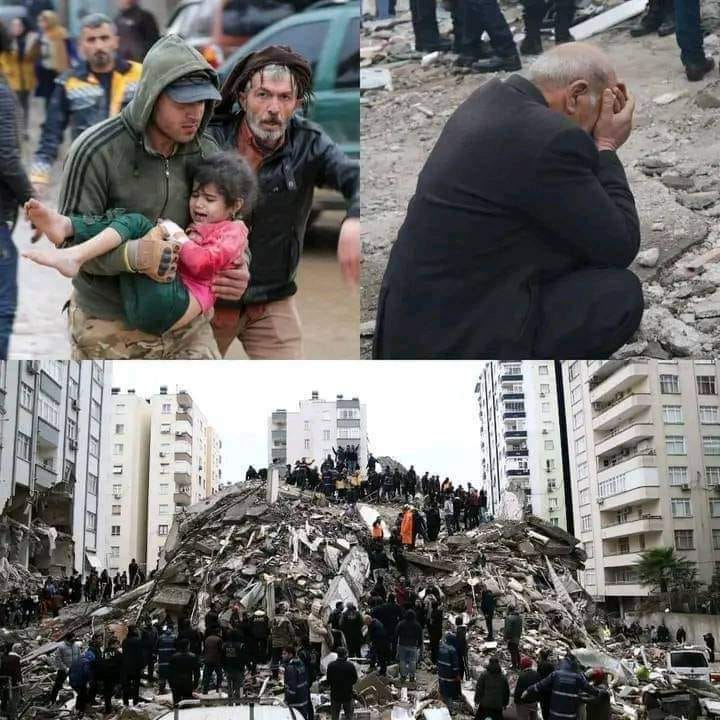
Afghan Refugees Solidarity Association (ARSA)
Afghan Refugees Solidarity Association (ARSA), Turkey, is a non-profit organization dedicated to providing support and assistance to refugees and asylum seekers in Turkey. As a part of its subgrant project, the ARSA team launched the initiative "Children with Backpack '' that engaged forcibly displaced children to tell their experience through artistic expression. The profound psychological and emotional impact experienced by forcibly displaced children and the lack of appropriate support exacerbates their emotional distress and hinders their personal development. Throughout the organization of 10 workshops, the project provided a safe and nurturing environment where forcibly displaced Afghan children in Turkey gained confidence and expressed themselves through art.
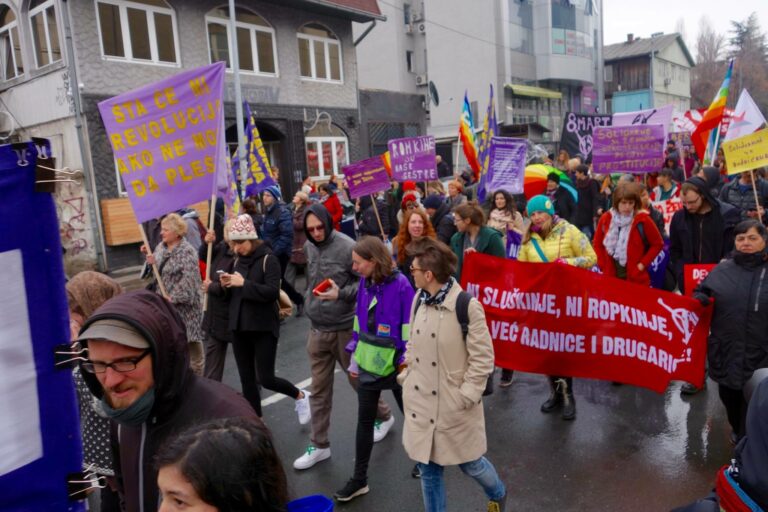
InfoPark
InfoPark, Serbia, is an association established in 2015 in Serbia in an effort to respond to the immediate refugee situation and unprecedented inflow and outflow of refugees from Middle East, Asia and Africa. It started as an information and connectivity point in a park, near Belgrade’s bus station where refugees and migrants were coming to seek help and support they needed. As the needs were growing InfoPark started introducing new services including protection and Psychosocial Support (PSS) for refugee and migrant children, including unaccompanied and separated children. As a part of its subgrant project, InfoPark team engaged unaccompanied youth to tell their experience of displacement and share how they imagine their own future through drawings. The team devised activities to build trust with the children and create a space where they would regain agency over their narrative and life. The starting point was to ask them “what do you think I should know about you?”
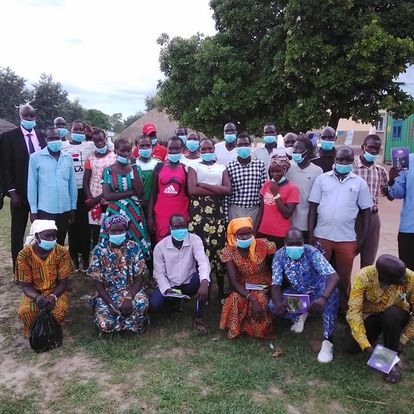
Global Society Initiative for Peace and Democracy (GLOSIPAD )
Global Society Initiative for Peace and Democracy (GLOSIPAD ), Uganda, is a South Sudanese civil society organization that supports peace building and conflict mitigation initiatives, advocates for human rights, facilitates the sharing and collecting of oral histories, combats dangerous hate speech, and provides psychosocial support in the Rhino Camp of Refugees in Northern Uganda. As a part of its subgrant project, GLOSIPAD team engaged youth from two divided communities (the Nuer and the Dinka communities) living in the Rhino Camp to share their experience of conflict and forced displacement and promote peacebuilding and reconciliation efforts. GLOSIPAD invested a lot of time to meet and discuss with the different groups from both communities, including community leaders, youth representatives, women leaders and religious leaders, to build trust and gain their support for the project.
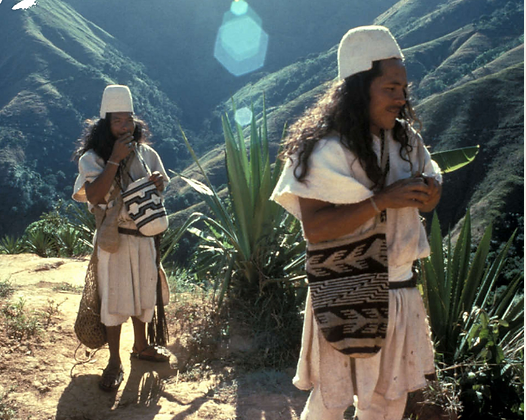
Mujer Diaspora
Mujer Diaspora, Spain and England, is an initiative to empower Colombian women in the diaspora to become agents of change in the Colombian peace process and in their host countries. It aims to contribute to healing the trauma caused by both the armed conflict as well as the migration process; ensure the lived experiences of the diaspora community informs the formal truth, memory and reconciliation initiatives in Colombia; and improve integration of the diaspora in the host countries. As a part of its subgrant project, Mujer Diaspora team engaged with 20 Colombian women victims of the Colombian conflict and living in exile in London and in Barcelona. All those women had a retraumatizing experience when giving their testimony before the Colombian truth commission in charge of investigating the conflict-related atrocities. Through literacy creation workshops, those women gathered to share and reflect on their experiences and the resilience strategies they developed over years. Acknowledging those women’ experiences and valuing the skills and strategies they developed, contributed to their collective healing and empowerment.
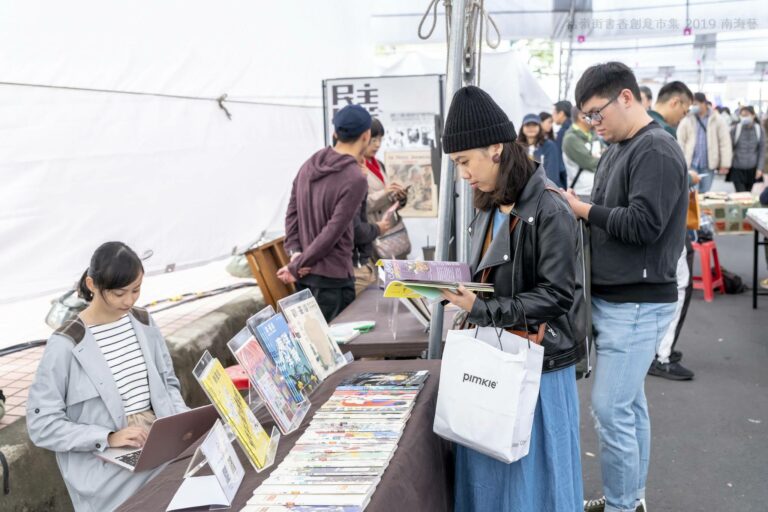
National Museum of Taiwan History (NMTH)
National Museum of Taiwan History (NMTH), Taiwan, strives to promote Taiwan’s cultural identity and offer a deep and multifaceted understanding of contemporary Taiwanese history and society. As an island nation, Taiwan has historically welcomed immigrants from different eras, resulting in the formation of a diverse immigrant society. But the voices of immigrants have historically been marginalized. As a part of its subgrant project, the NMTH team initially focused on building trust and recognition of the Dalai Lama Foundation and the embassy of the Tibetan government in-exile in Taiwan. With their official support, the NMTH team then engaged with the community members and co-created with them a safe space and empowering story-telling methods (like music and dance) to express their personal experiences of exile and displacement and in doing so ensuring that the project will not reinforce the voice of the community’s representatives but will provide a platform for marginalized voices in the community to express and gain agency over their narrative.
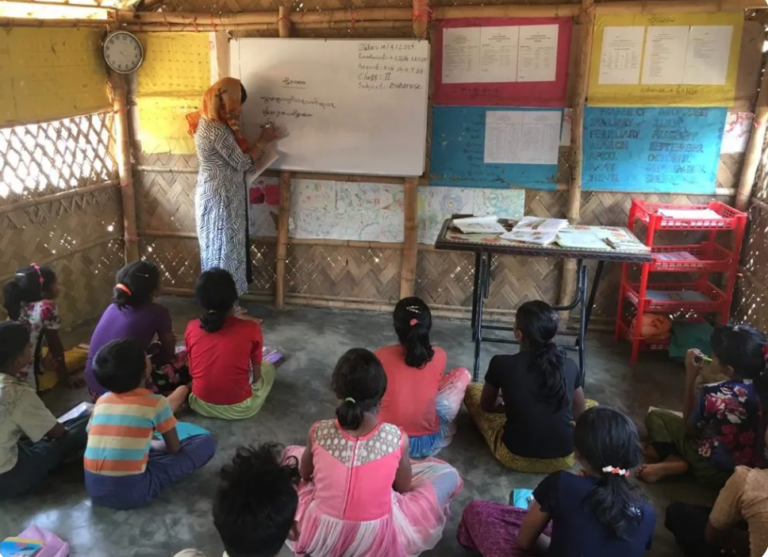
Rohingya Human Rights Network (RHRN)
Rohingya Human Rights Network (RHRN), Canada and Bangladesh, is a network of Rohingya activists, speakers and writers from the refugee camps and other diaspora that raise awareness of the plight of the Rohingya. As a part of its subgrant project, the RHRN team worked on documenting Rohingya villages and sites of cultural significance inside Myanmar that have been erased by the Myanmar government and that do not appear anymore on maps. The objective is to counter the official narrative that denies the Rohingya’s history and existence in Myanmar by establishing an online interactive publicly accessible database where exterminated Rohingya villages will be shown with associated documents such as identification cards, census cards, photos of mosques, schools, cemeteries, etc. preserved by Rohingya survivors in refugee camps. The RHRN team focused its efforts on empowering the Rohingyas in the camps to document by themself their villages and sites that have cultural significance for them and foster ownership of the project.
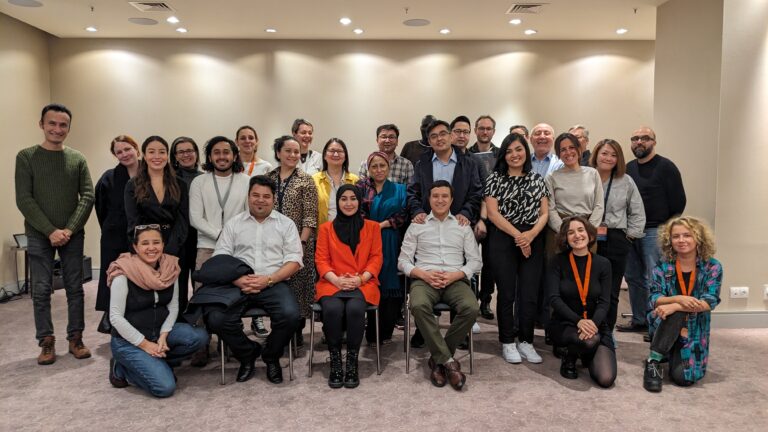
In Their Own Voice - Berlin, February 2024
From February 21-23, 2024, GIJTR, AHRDO, and local partner, Medico International, organized “In Their Own Voice: Centering Forcibly Displaced Communities in Advocacy Efforts”, a three-day conference on Forced Displacement in Berlin, Germany.
The meeting gathered 20 representatives of CSOs working on human rights, transitional justice and forced displacement in Afghanistan and globally to discuss how to ensure meaningful and equitable participation of forcibly displaced people in advocacy; strengthen participants’ capacity to build effective advocacy strategies; and develop collaboration and build alliances among diaspora and across communities nationally, regionally and internationally. As a result of the meeting, participants drafted Recommendations for Meaningful and Equitable Participation of Forcibly Displaced People, which will be available here soon.
To foster networking between the meeting’s participants and Berlin-based organizations working on forced displacement, ICSC and AHRDO also organized in partnership with Give Something Back to Berlin a side event, “Addressing Trauma in the Context of Forced Displacement,” on February 22, 2024. The event brought together 50 organizations representatives and served as a platform for sharing experiences and best practices and foster collaboration for better mental health and psychosocial care of forcibly displaced populations.

